The recent Research Translation Café at UTS was a chance for researchers to deepen their understanding of research translation. Attendees heard from leaders in the field: a medtech founder and representatives from Uniseed and CSIRO’s ON Program.
Love the problem
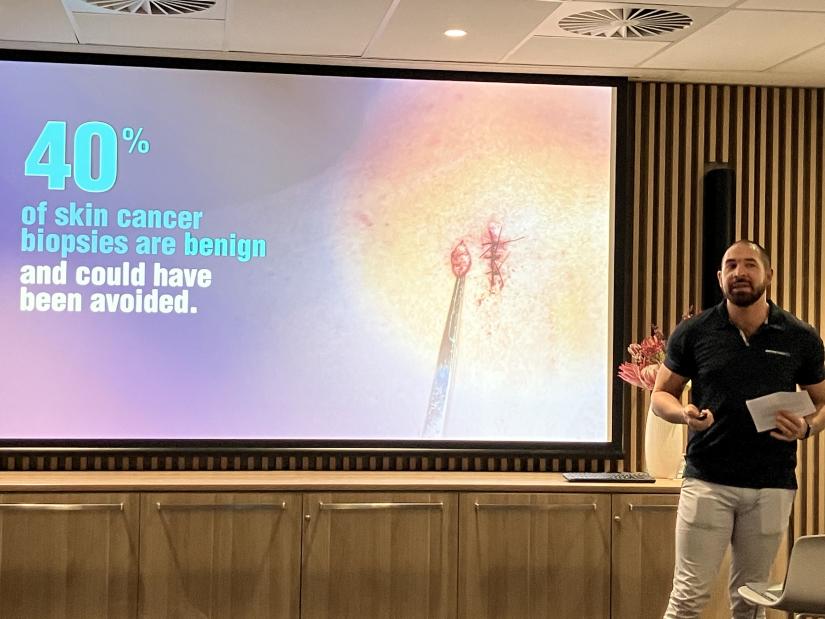
Stefan Mazy speaking at Research Translation Cafe
Their stories of turning research ideas into impactful solutions showed how research translation is a journey that thrives on partnerships, creativity and a relentless pursuit of clarity and impact.
Opening the Cafe, UTS Pro Vice-Chancellor (Research) Professor Chris Turney discussed the importance of making impact in the world.
“At UTS, we pride ourselves in getting knowledge out there and making a difference in the world, at speed and scale,” he said. “Our Research Translation team’s work is growing as we do more and more work in this important space.”
Chris said that the research translation journey can be a lonely existence, especially when you're starting, and that everyone's journey is different.
We often sit in our silos, but the innovation spark comes when you have an idea and someone across the University sees what they can do with it - together you could do something even more extraordinary.
“What we're trying to do more at UTS is explore the variety of ways we can generate knowledge and get it out there to make a difference in the world,” he said.
“We often sit in our silos, but the innovation spark comes when you have an idea and someone across the University sees what they can do with it - together you could do something even more extraordinary. We're here to support you to do that.”
Trailblazing skin genomics
Stefan Mazy, CEO and founder of DermR Health, then offered an inspiring story about how he has created a groundbreaking DNA skin health test for cancer diagnosis.
Stefan’s venture has expanded to over 20 global markets, accounting for 70% of all DNA skin health tests worldwide. His latest innovation, a non-invasive patch for skin cancer detection, has the potential to transform how the condition is diagnosed.
This new approach could significantly reduce the reliance on traditional, invasive biopsies, 40% of which are benign, saving the global healthcare system millions.
Inspired by his mother’s experience of skin cancer and with no medical background, Stefan embarked on the challenge of finding a better way to diagnose skin cancer armed with a business degree and sheer determination.
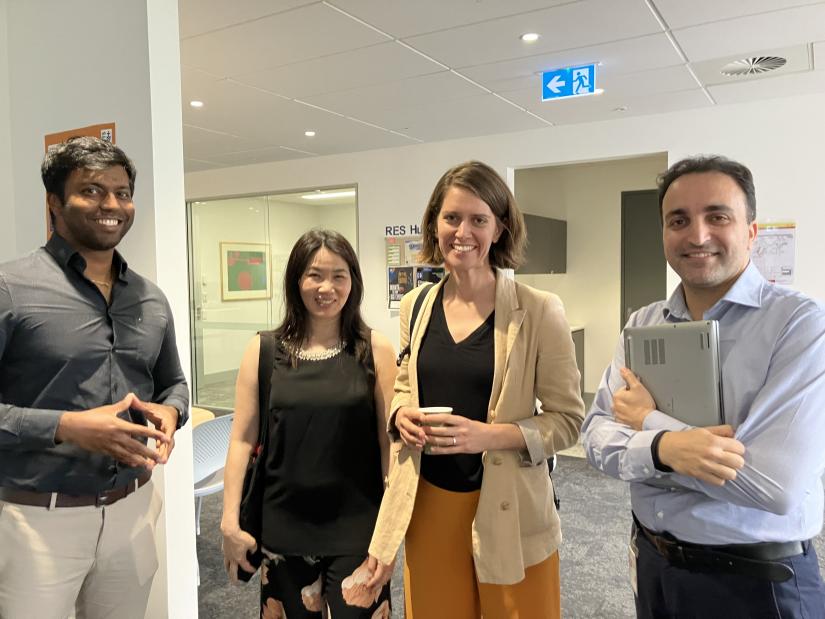
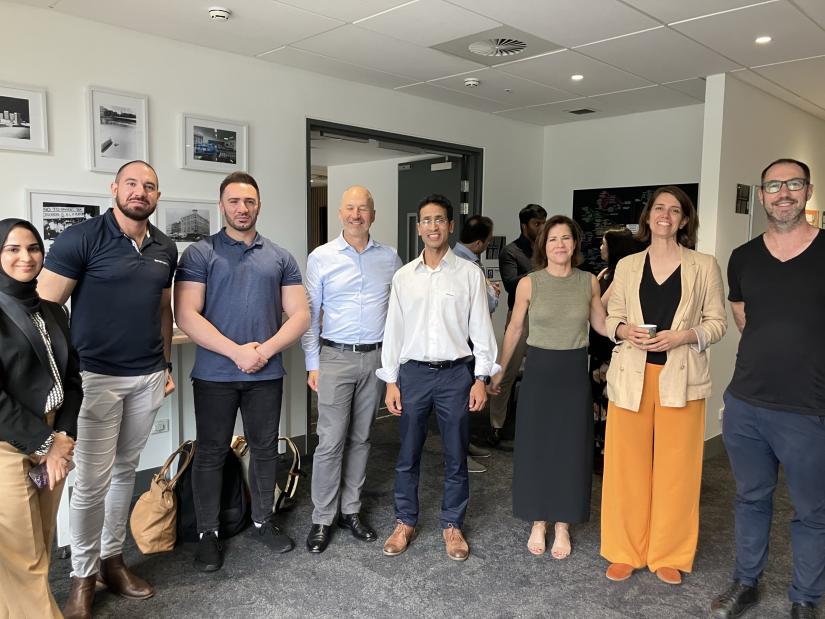
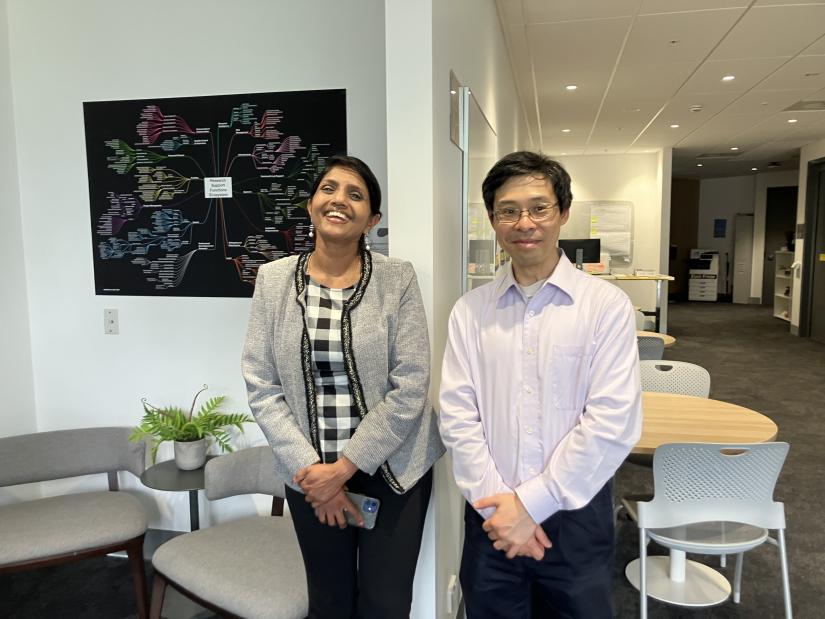
“It’s challenging when you don’t have that early doctor or clinician backing you,” he said. “It takes perseverance and creative problem-solving.”
Stefan said that there is no set way to get from point A to point B.
“I think there are an infinite range of opportunities, both from an academic perspective and as a non-academic. As a non-academic, it presents different challenges it takes a lot more perseverance, unique thinking and I suppose creating problem solving to achieve your goals,” he said.
"It wasn't easy, and I suppose here today is what I want to talk about, some of the challenges. you're constantly learning and you're constantly evolving."
Among the personal challenges Stefan faced, he had a business degree but lacked formal technical qualifications in genomics, university affiliations or connections, and had limited knowledge of the medtech market.
He was, however, able to learn the intricacies of regulation through participating in an accelerator where he learned about the ethics process for performing clinical trials amongst other things.
In September 2024, Stefan’s team completed its first clinical trial of the dermal patch, the result of which validated a whole new way to test the skin cancer. His journey shows how adaptability and tenacity are as vital as technical expertise when it comes to research translation.
Venture capitalists are here to help
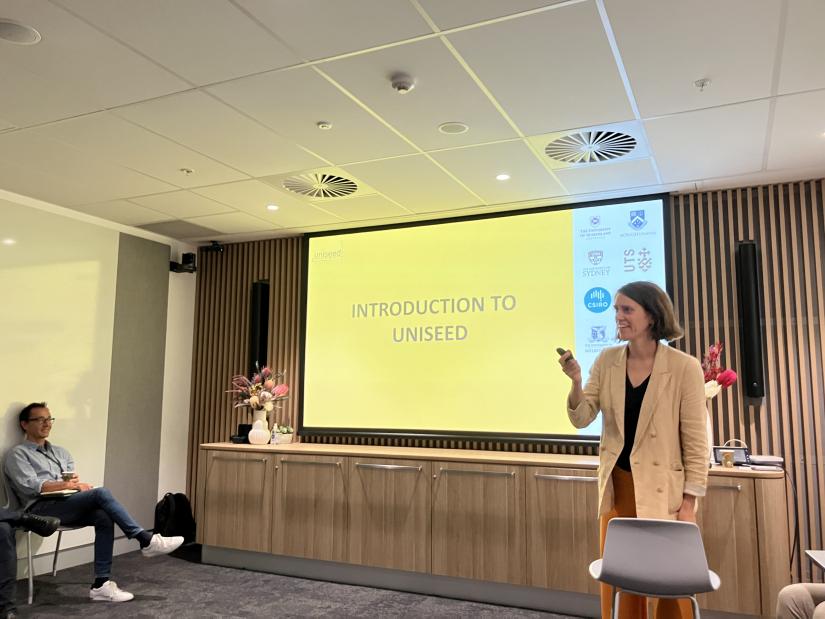
Dr. Laura Droessler, Investment Manager at venture capital firm Uniseed, highlighted the role venture capital can play in supporting researchers through commercialisation. She explained how developing a relationship with Uniseed is not just about securing funding. The team welcomes early-stage pitches from researchers and are on hand to help them develop their ideas, regardless of where they are at in their investment readiness.
“You do not have to be perfect in your first pitch to us,” she advised. “We want to get to know you as early as possible so we can help you identify where the market opportunities might be for your innovation and work with you to refine your product.”
Laura explained how venture capitalists work with researchers and their teams to help develop appropriate business models and anticipate the kinds of questions they may face from investors. She said that being willing to collaborate openly with investors is essential for evolving an idea from research to real-world impact.
Discover more about Uniseed.
Level up with CSIRO ON
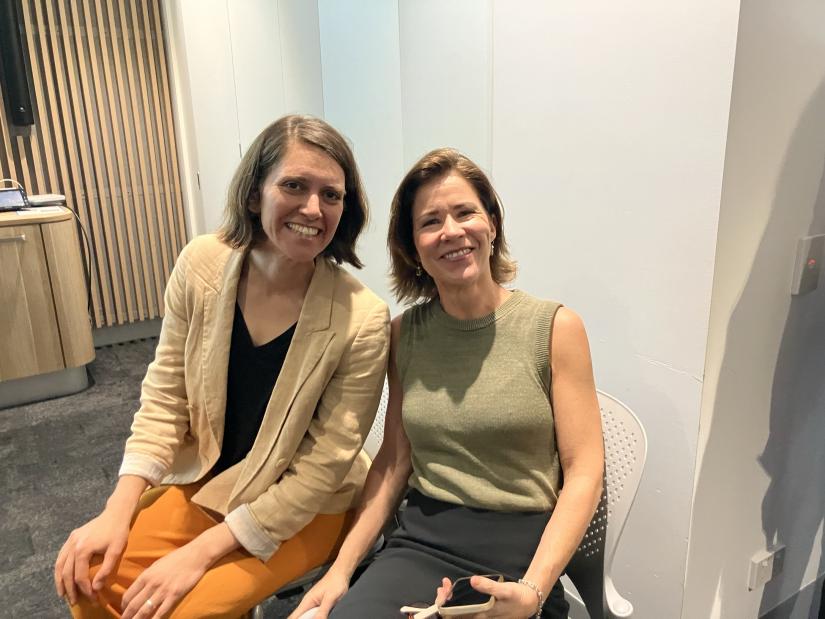
The event concluded with a Selena Boyfield, Ecosystem Manager at CSIRO, who discussed the various experiences on offer to researchers through the CSIRO ON program.
Funded by the Federal Government, the initiative equips researchers to navigate the translation journey and bridge the gap between research and impact or market needs. It enhances researchers' skills in communication, negotiation and connecting with industry and other key stakeholders.
“Australia is known for producing great research but translating those great ideas into business and societal impact is often where the challenge lies for us,” she said, explaining how the ON program encourages researchers to focus not just on their solutions, but on validating the underlying problem with real-world customers.
“You need to love the problem not the solution,” she warned. “Unless you validate what exactly the problem is and how you intend to solve it with those people who may use your product, you may not have a viable product,” she explained. End user discovery and validation of your market are key first steps. They also help de-risk your research.
You need to love the problem not the solution. Unless you validate what exactly the problem is and how you intend to solve it with those people who may use your product, you may not have a viable product.
While a customer-centric approach may not be typical for academic researchers, Selena explained why it is essential for aligning research with real-world needs and ensuring that innovations can create a genuine, lasting impact.
She added that while some researchers may venture into startups, others may find impact through licensing, policy influence, or consulting. These are all great pathways of impact.
“The CSIRO ON program helps you navigate all these varied pathways. We provide you with a supportive framework and skilled mentors to nurture your confidence and clarity,” she said.
Connect with CSIRO’s ON program.
Attend the UTS MedTech Bootcamp
Are you a UTS researcher seeking to learn about MedTech commercialisation? We’ve partnered with Cicada Innovations to deliver two, half-day morning workshops on 18-19 November 2024. Learn more.